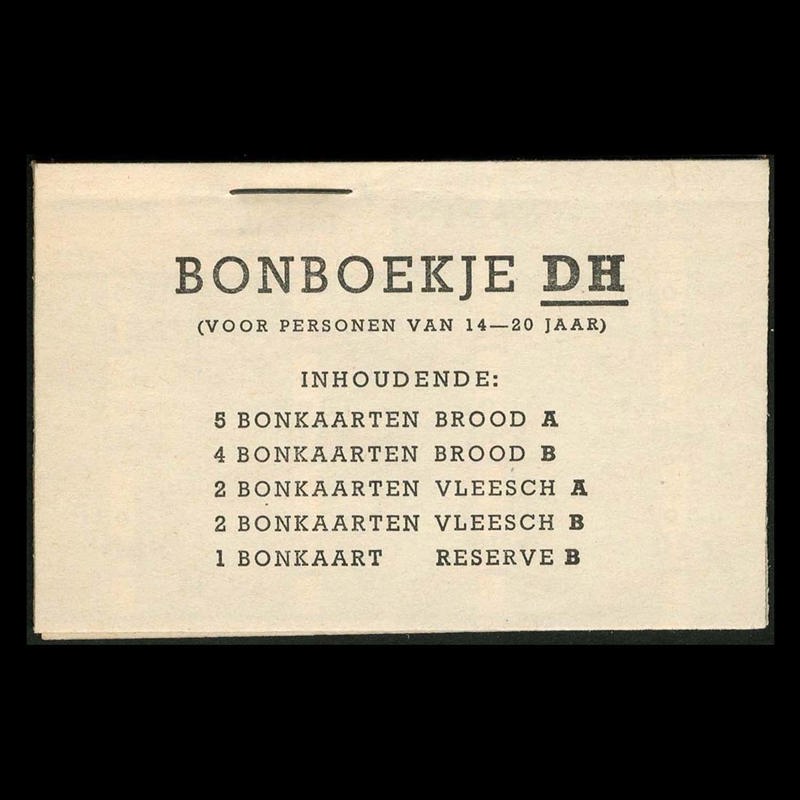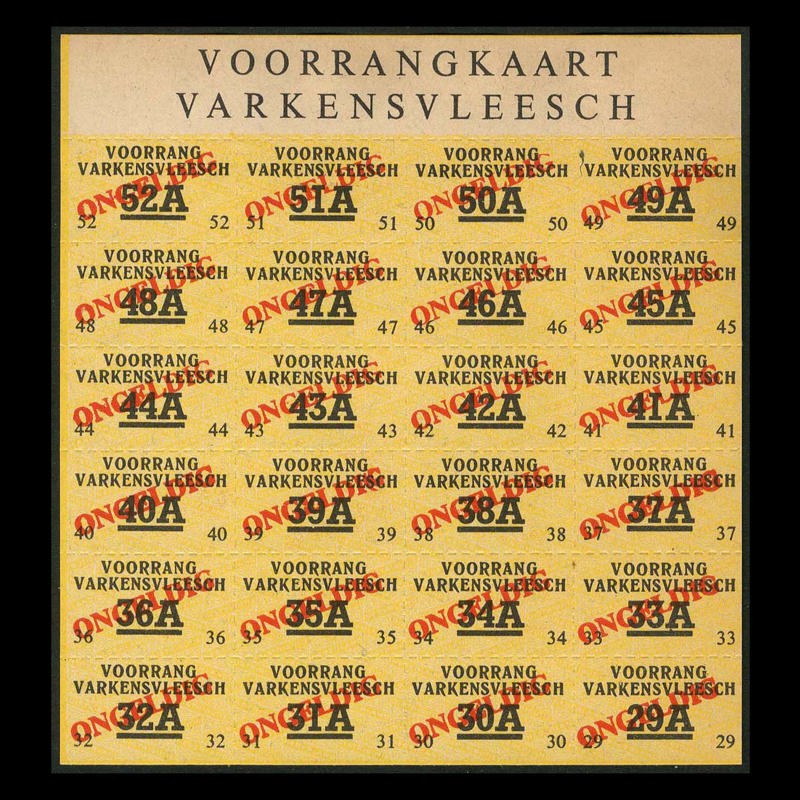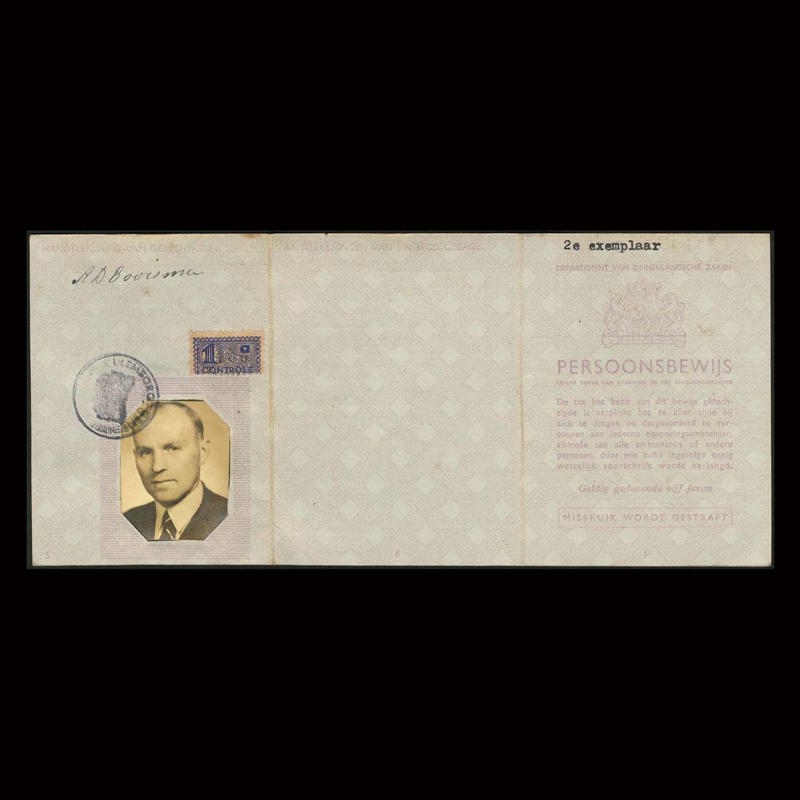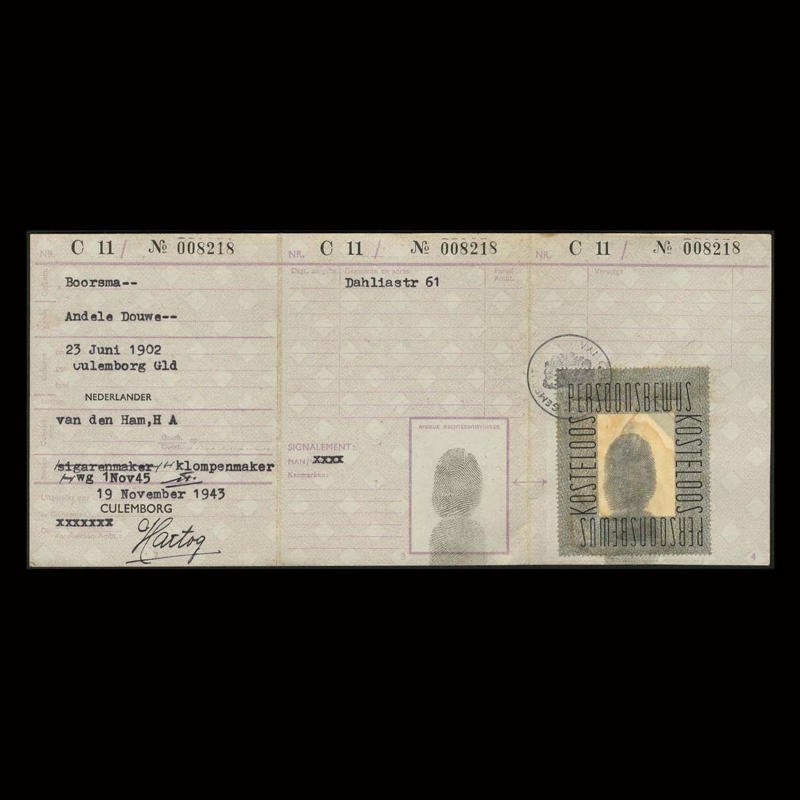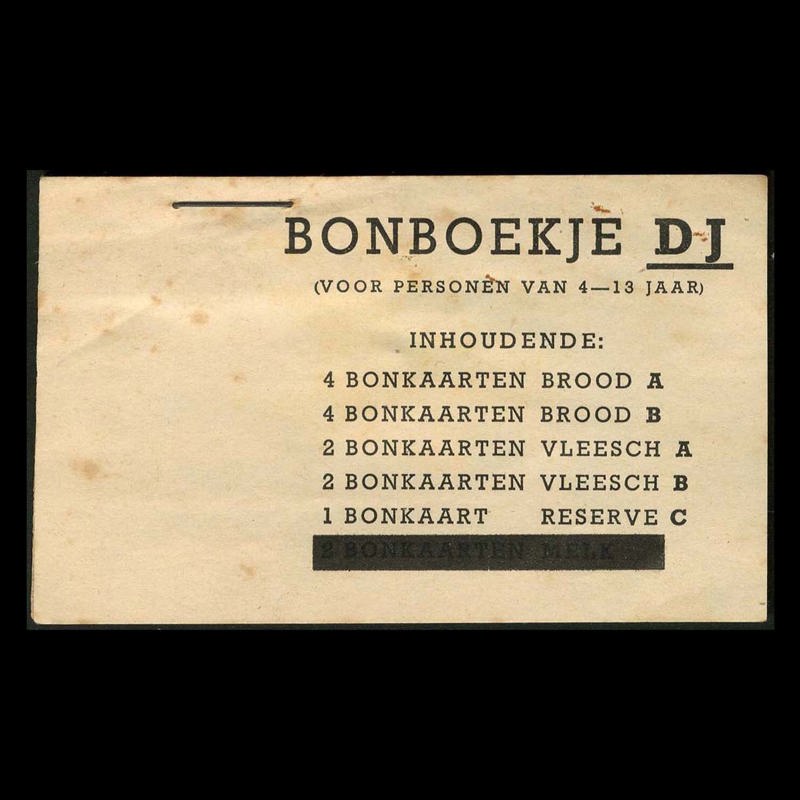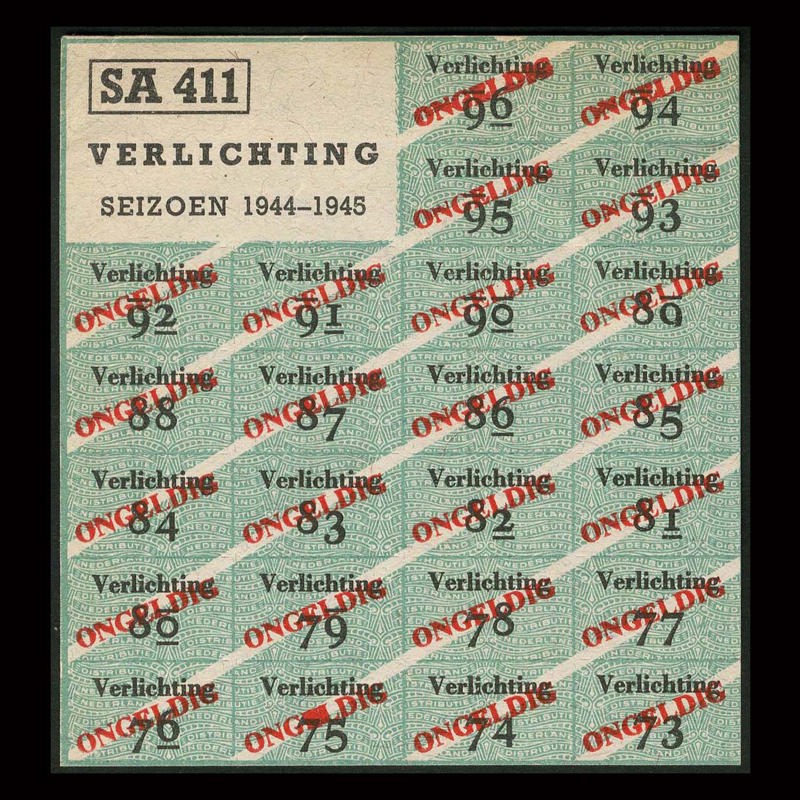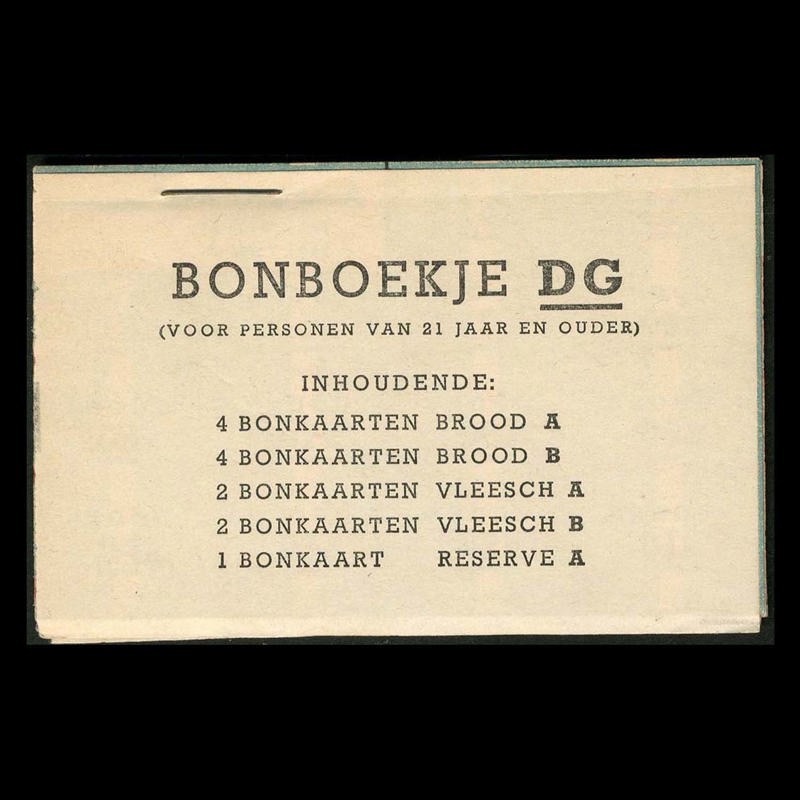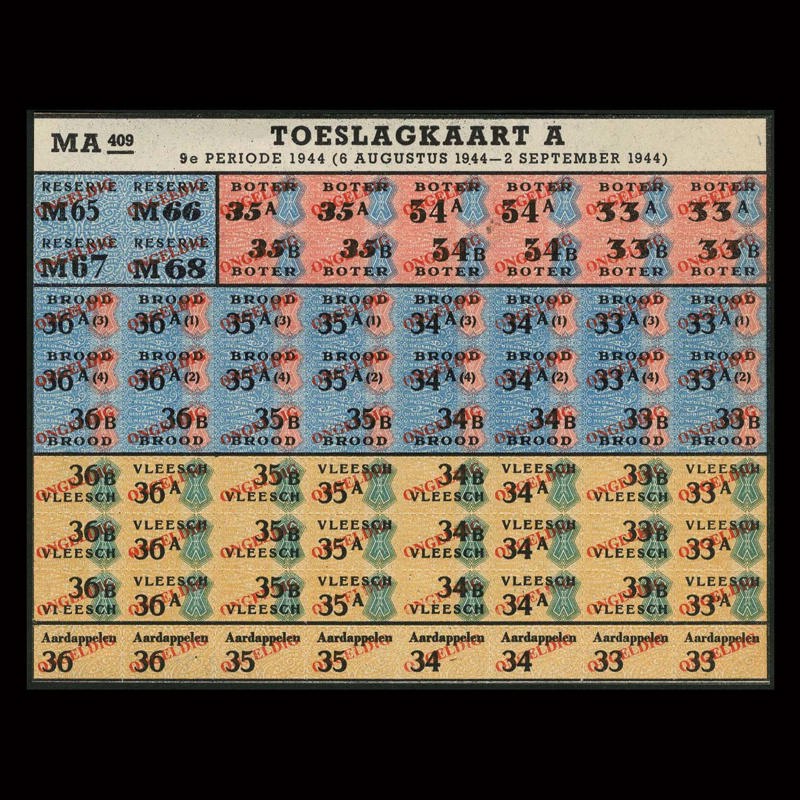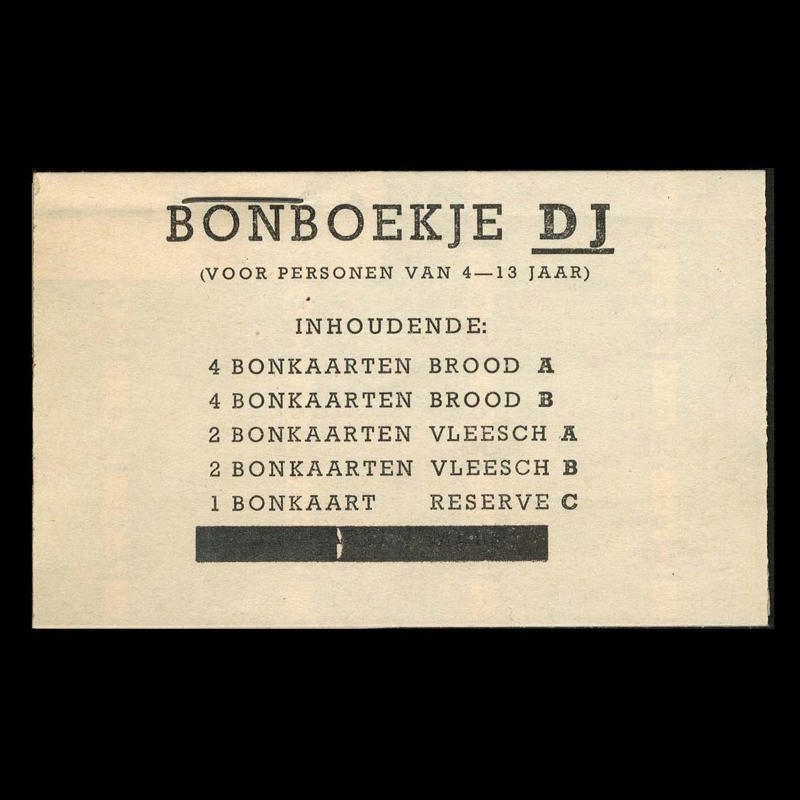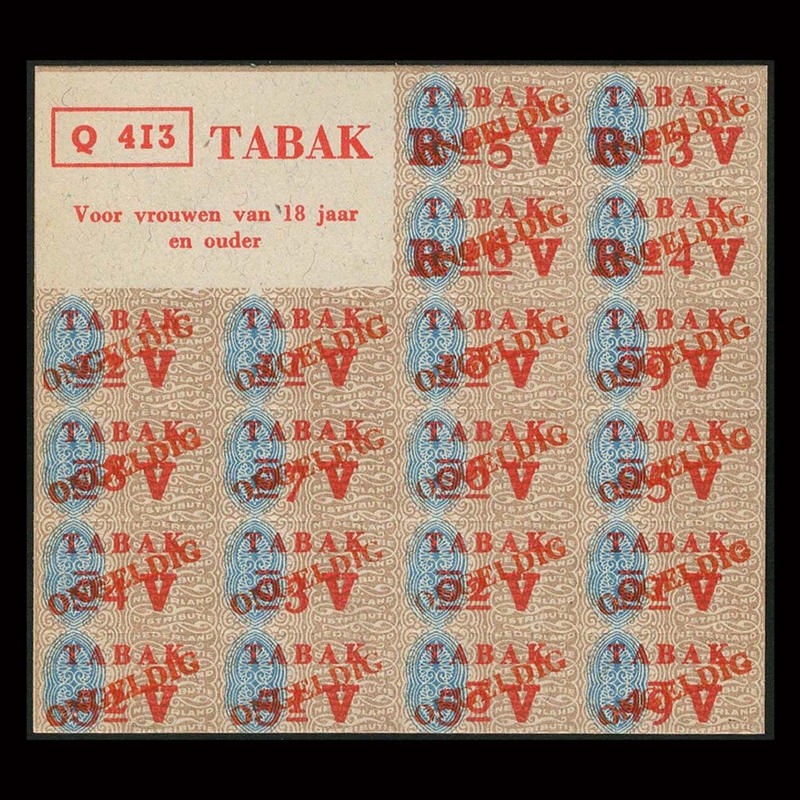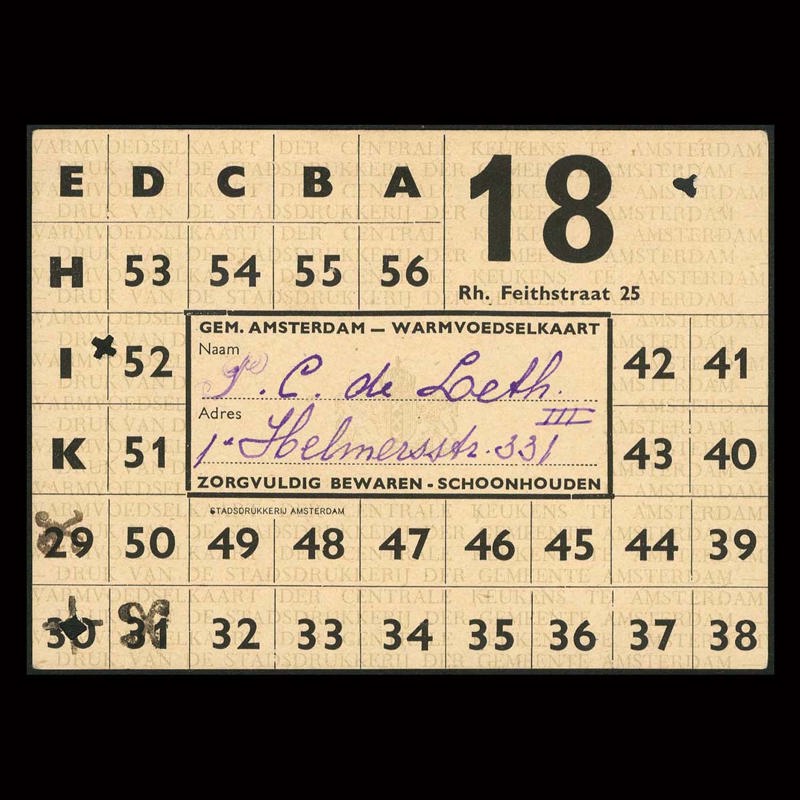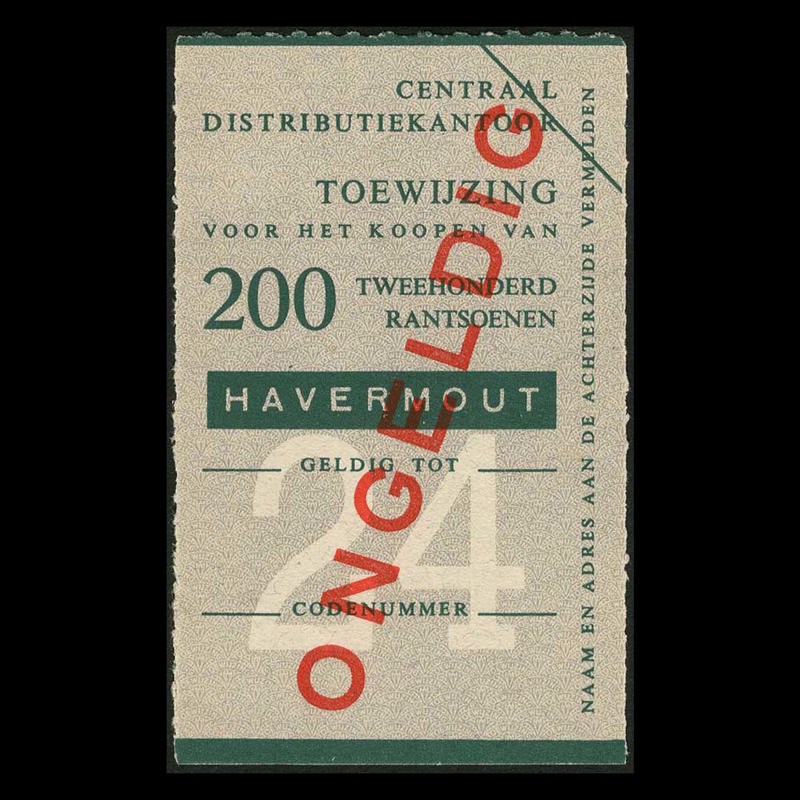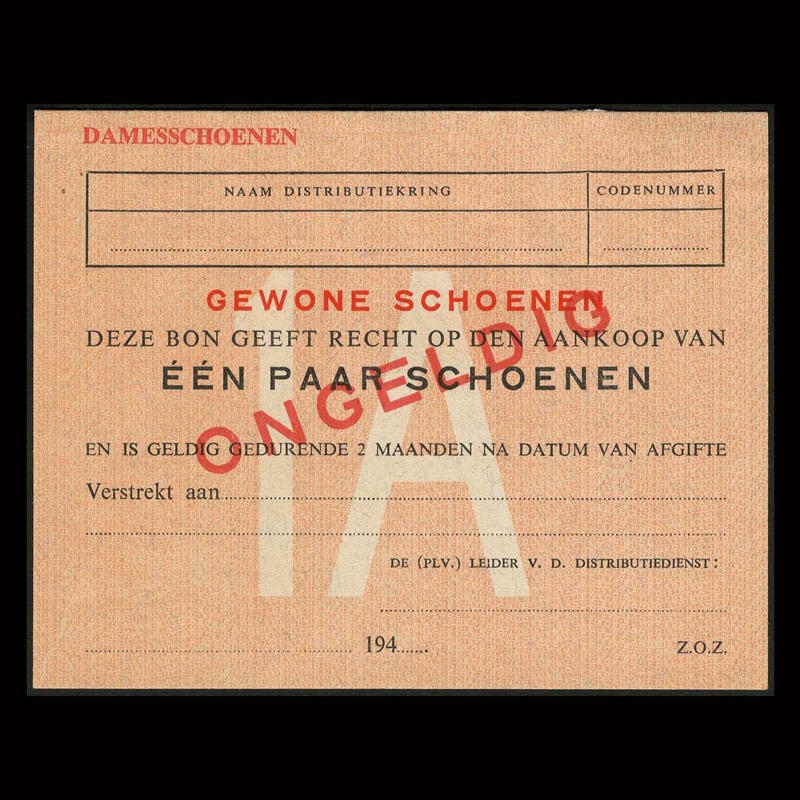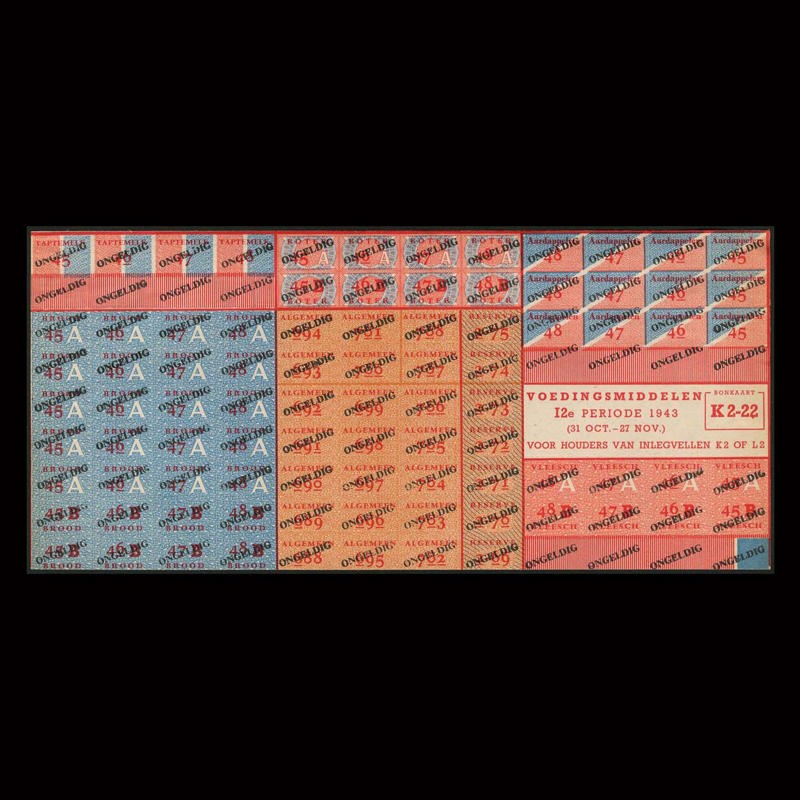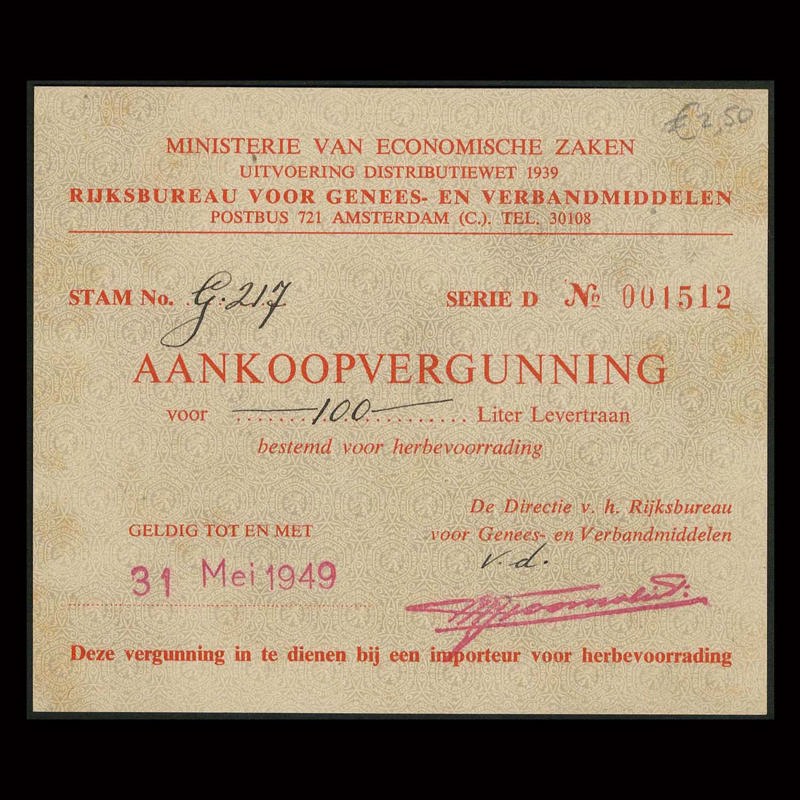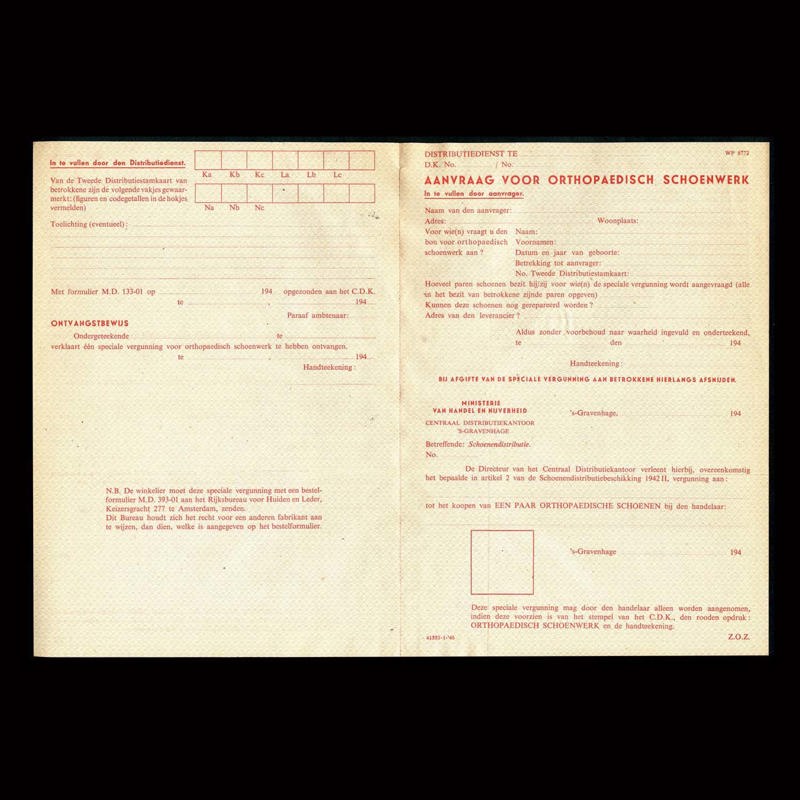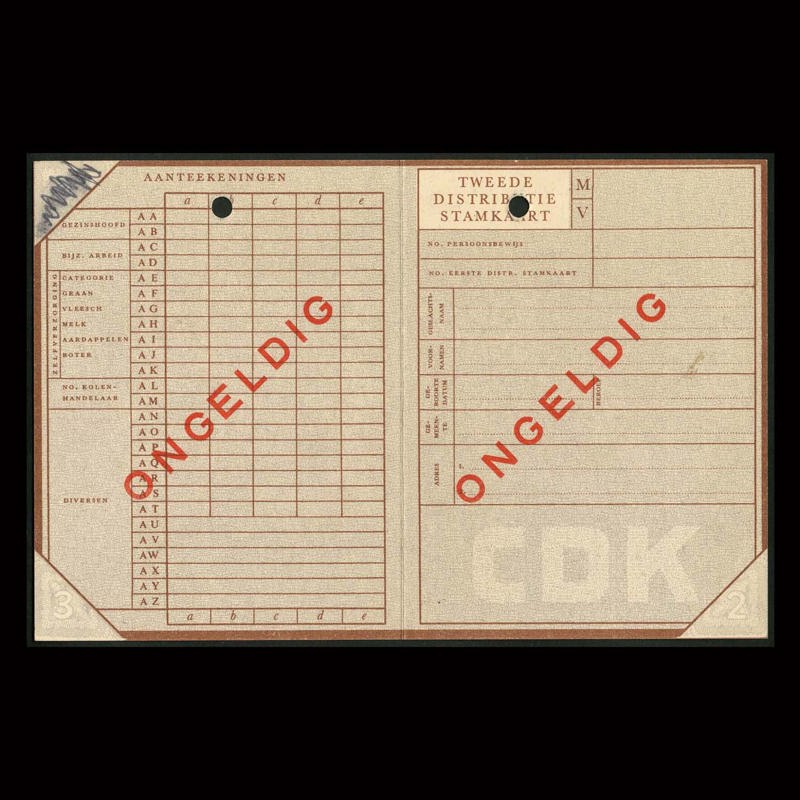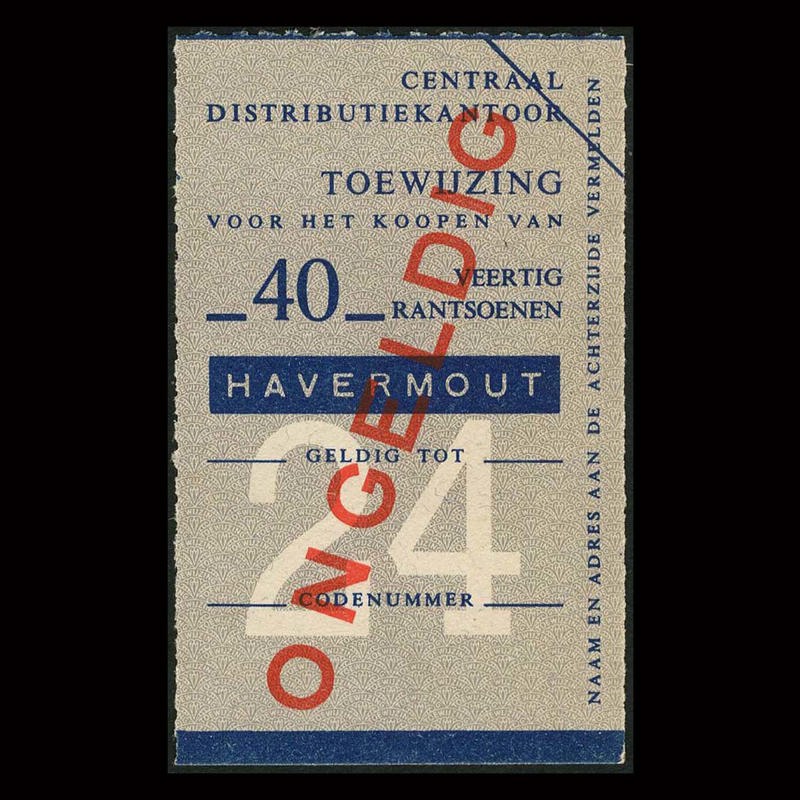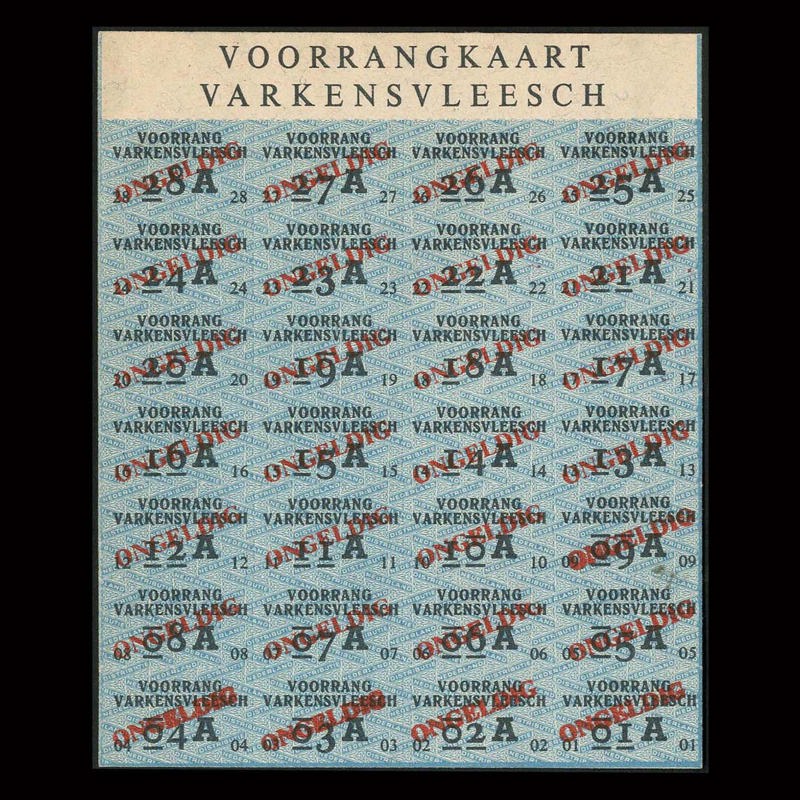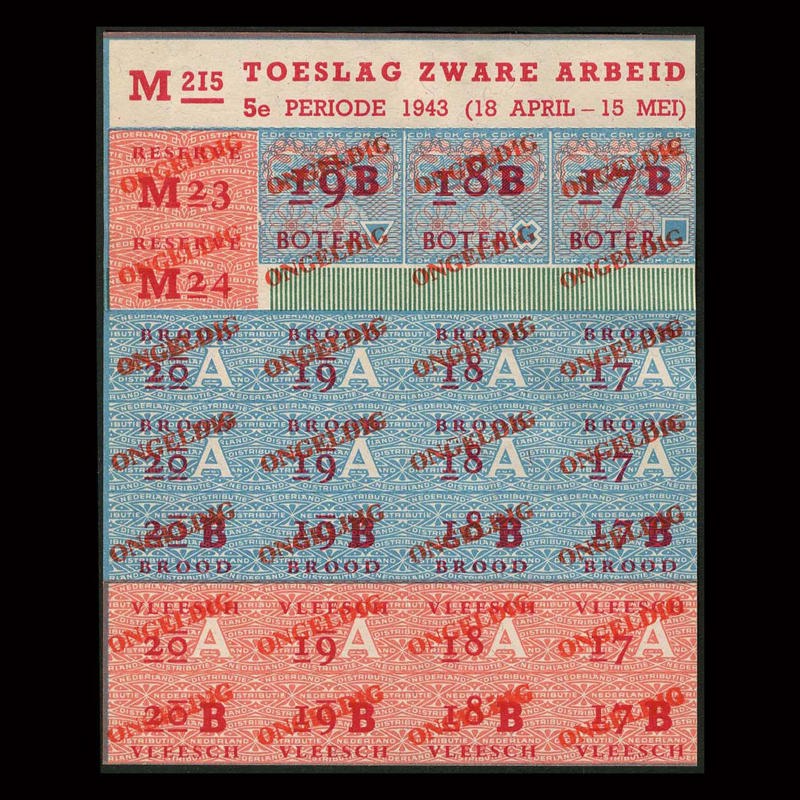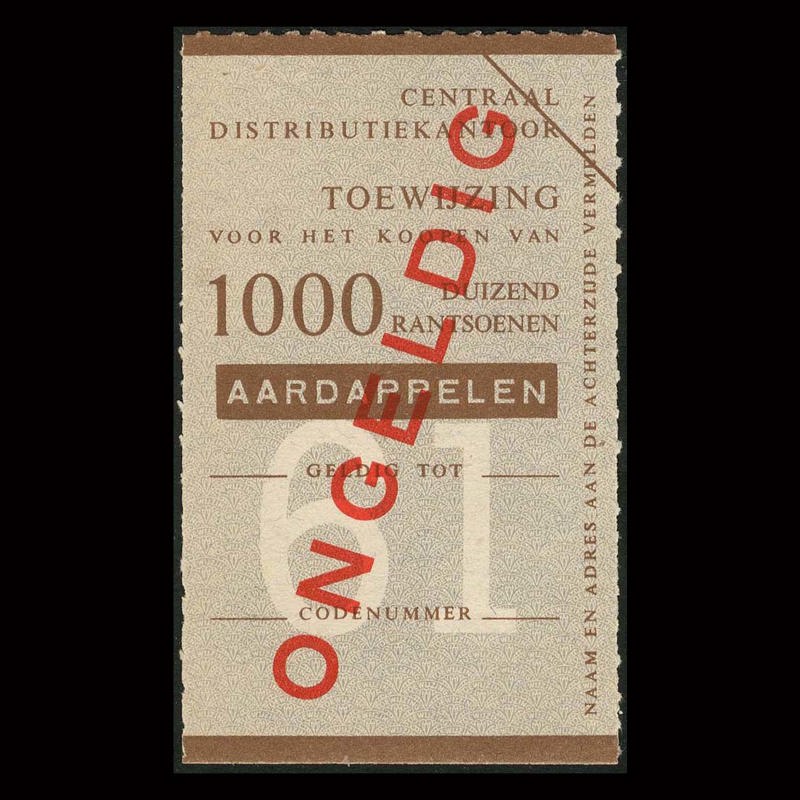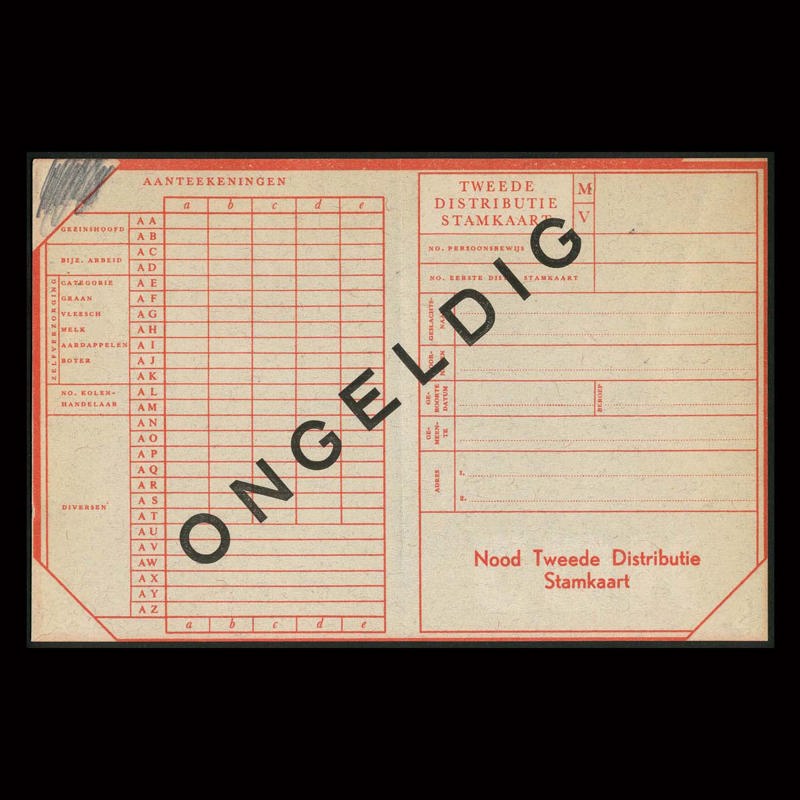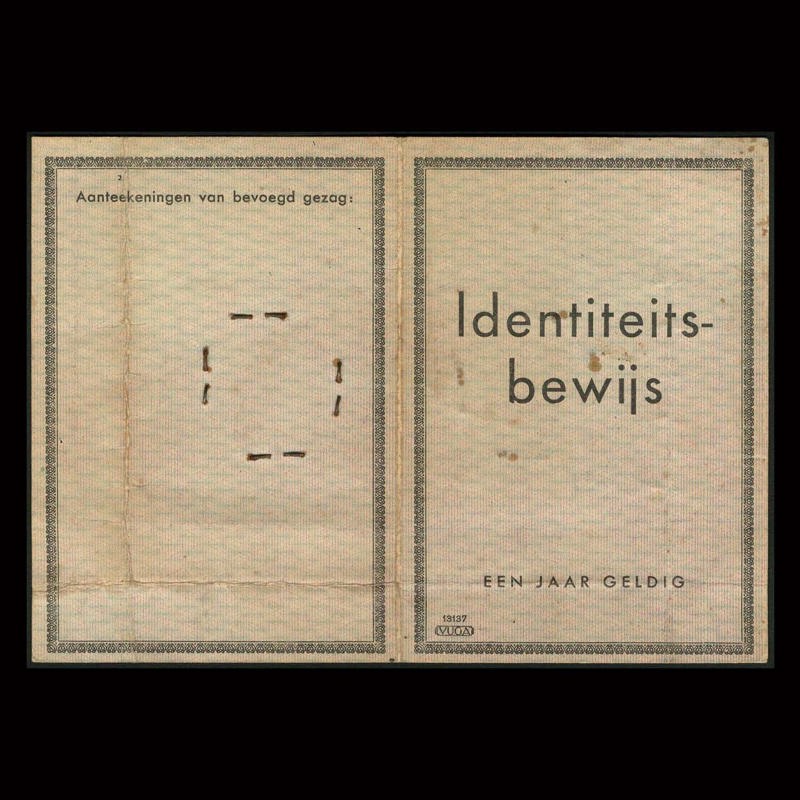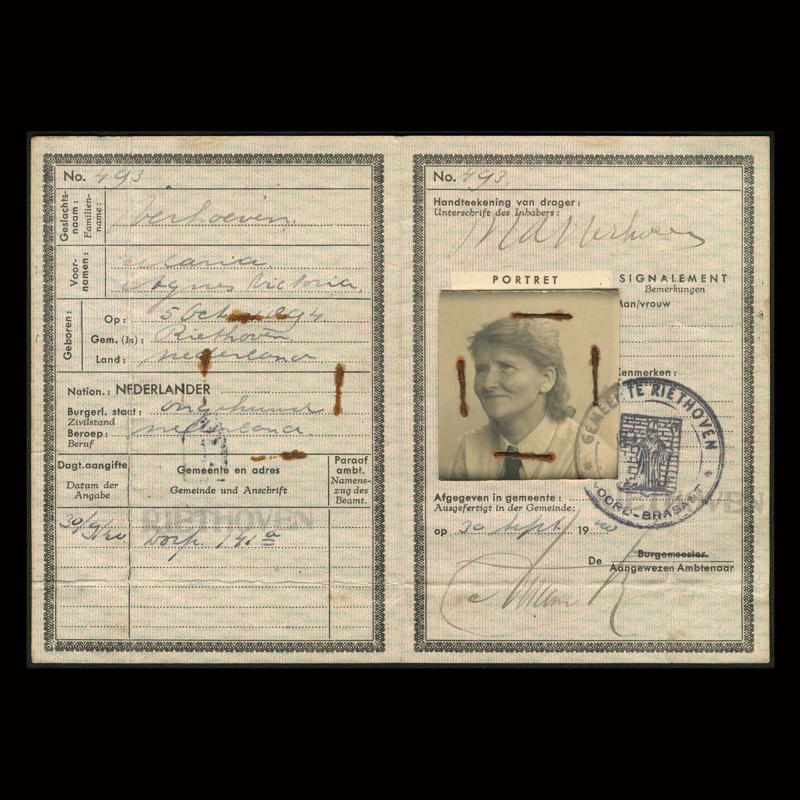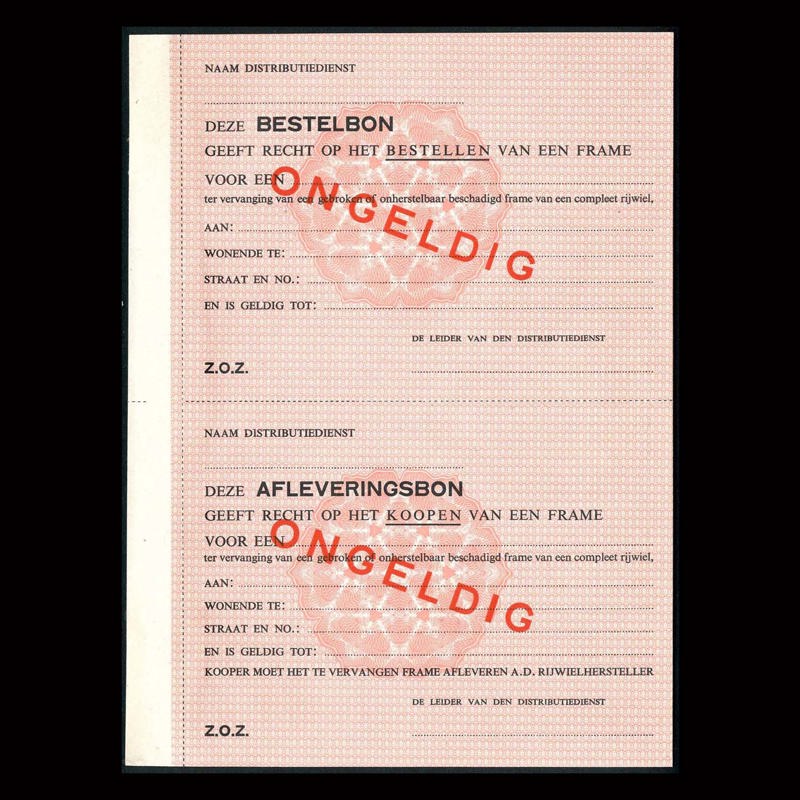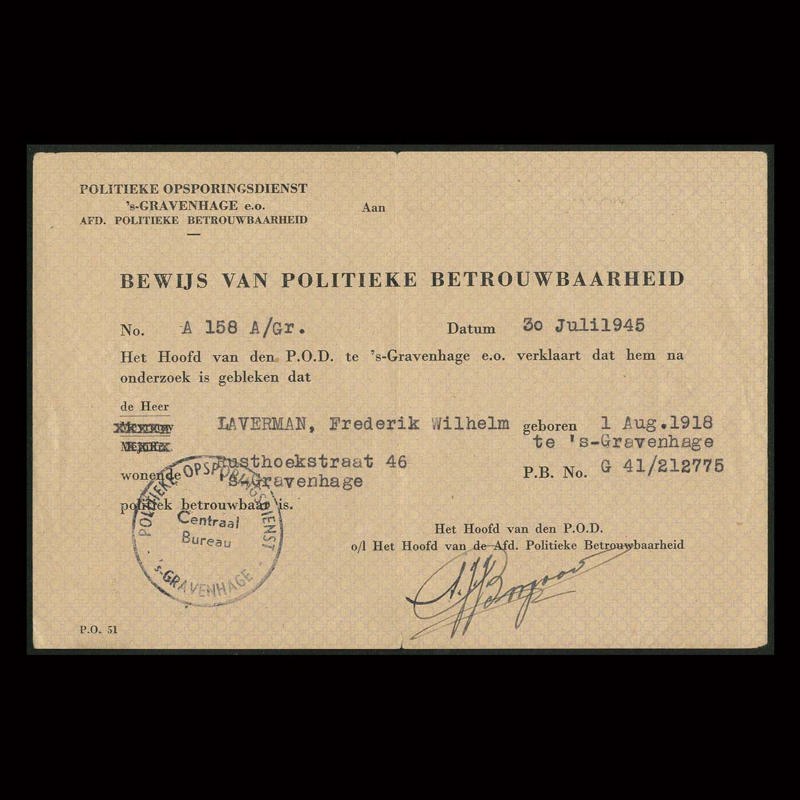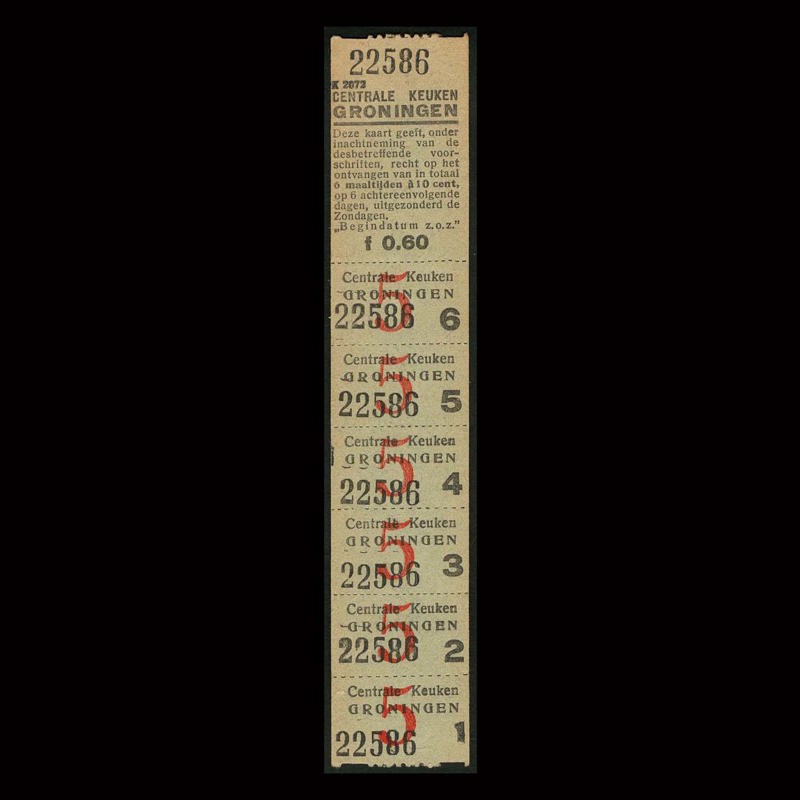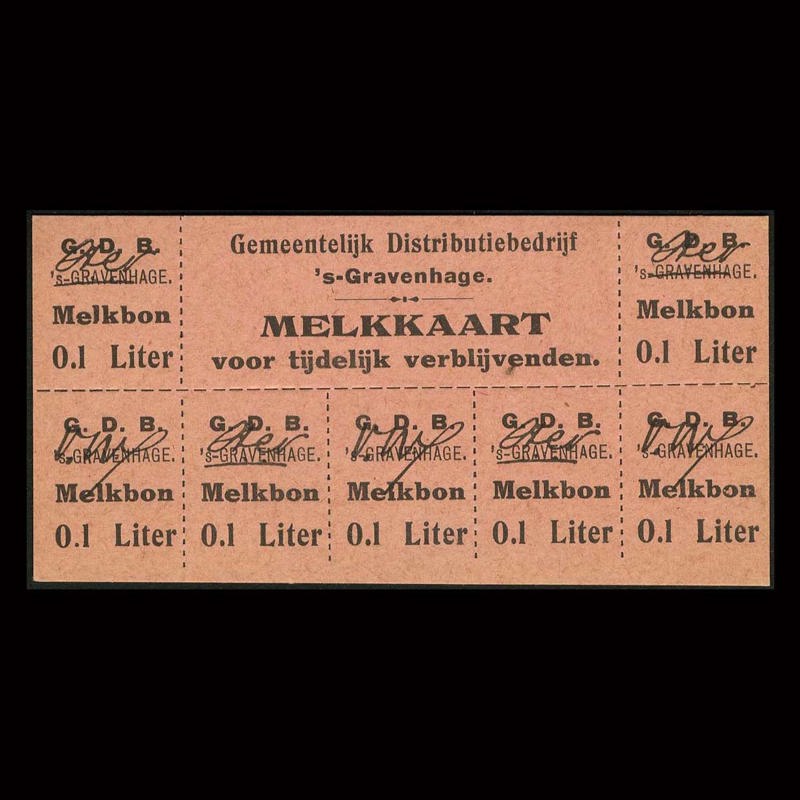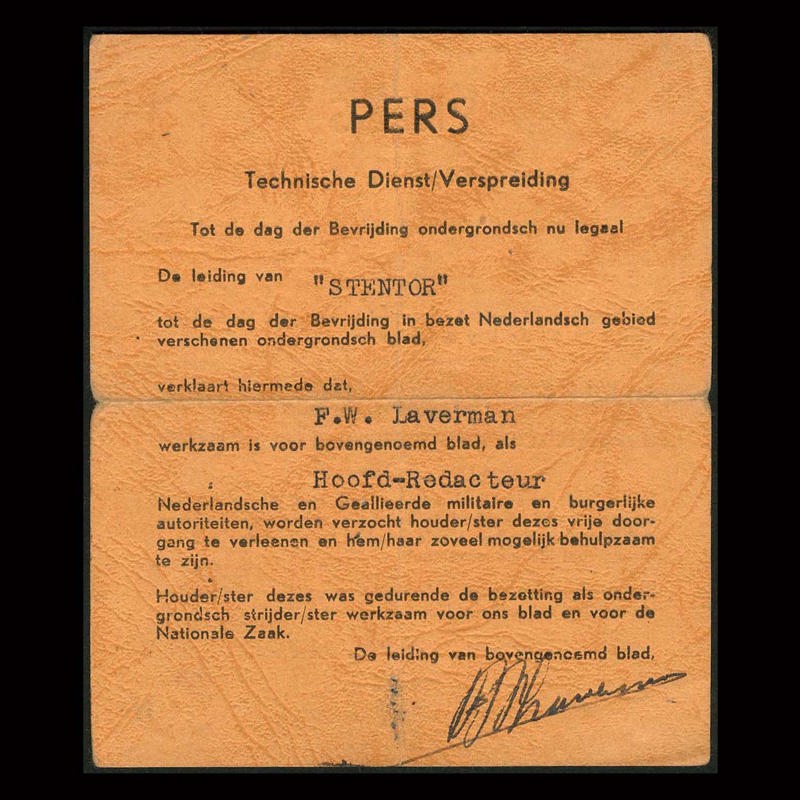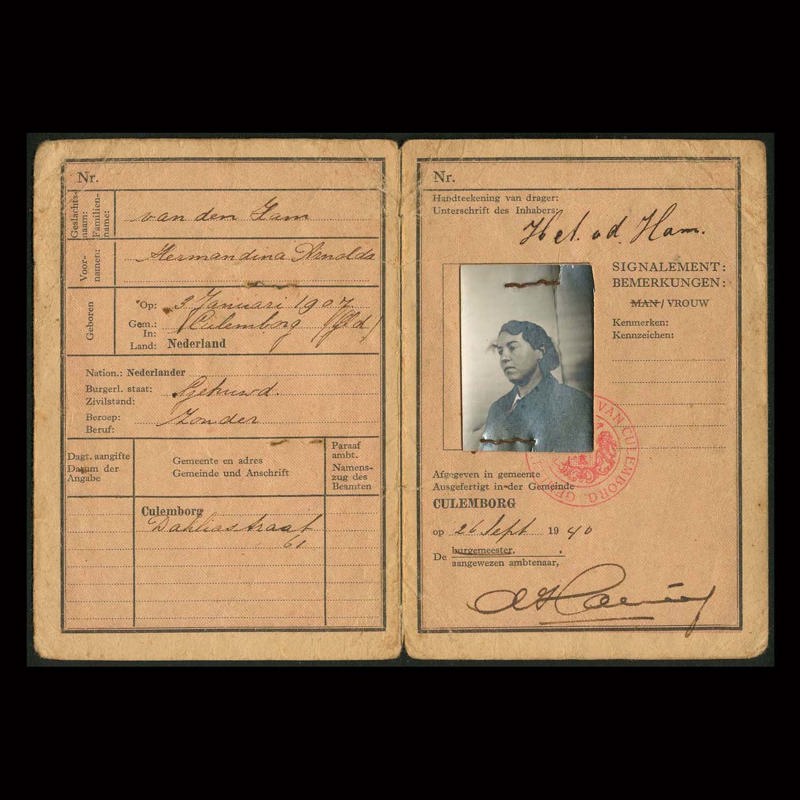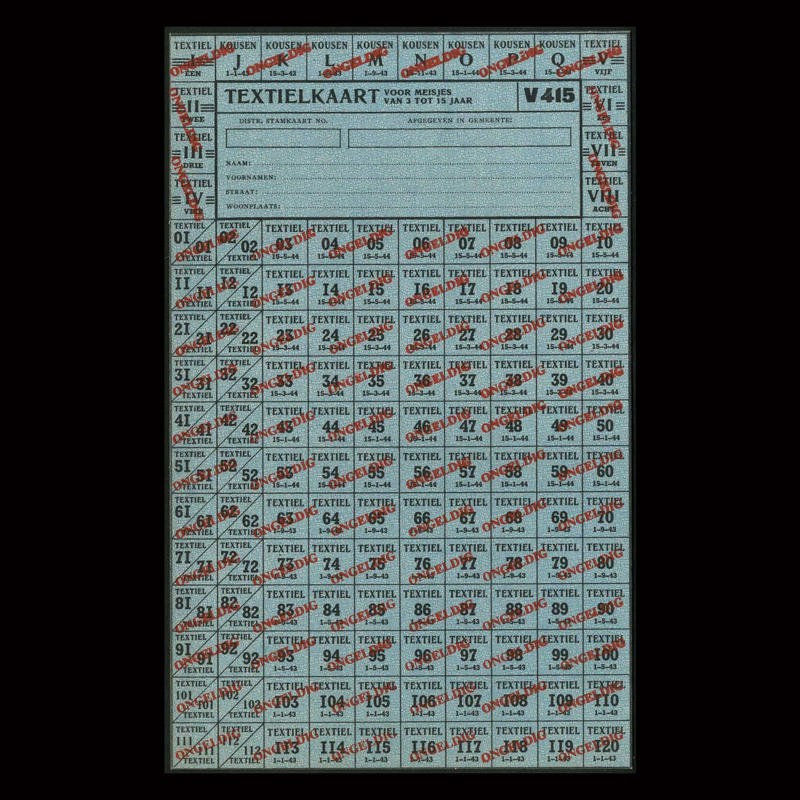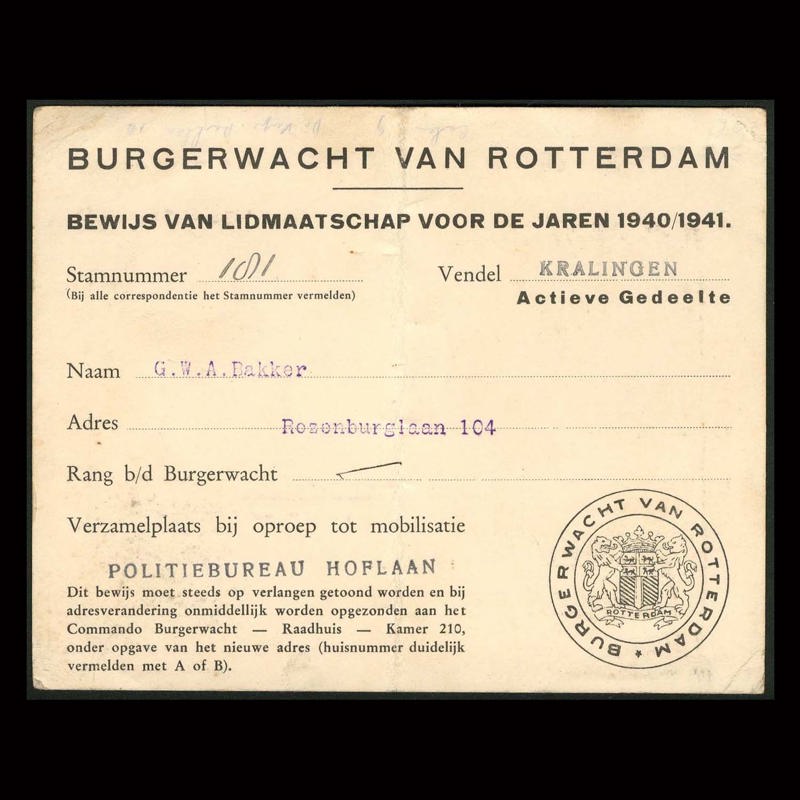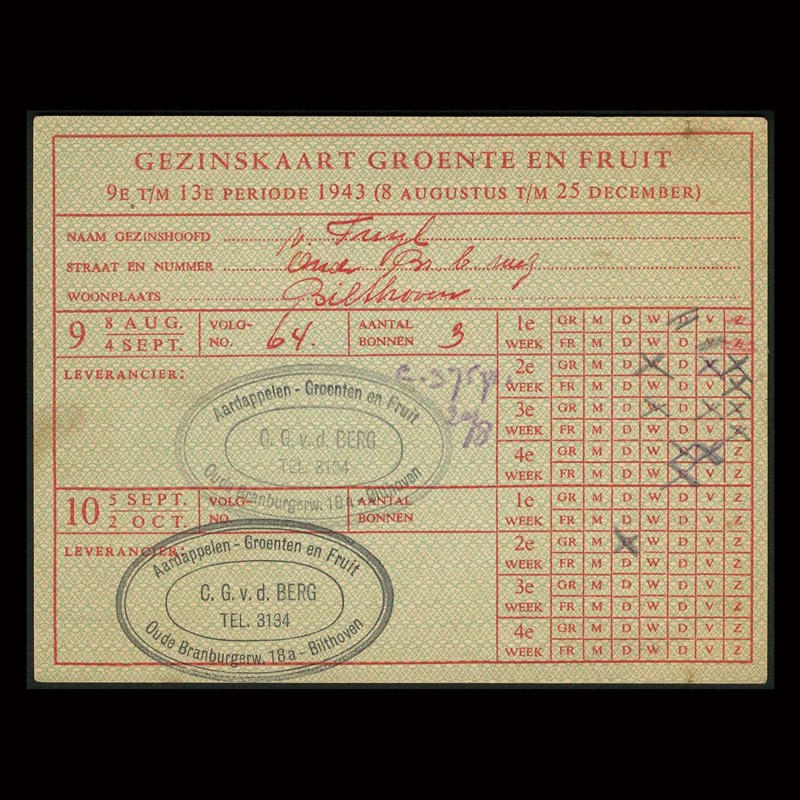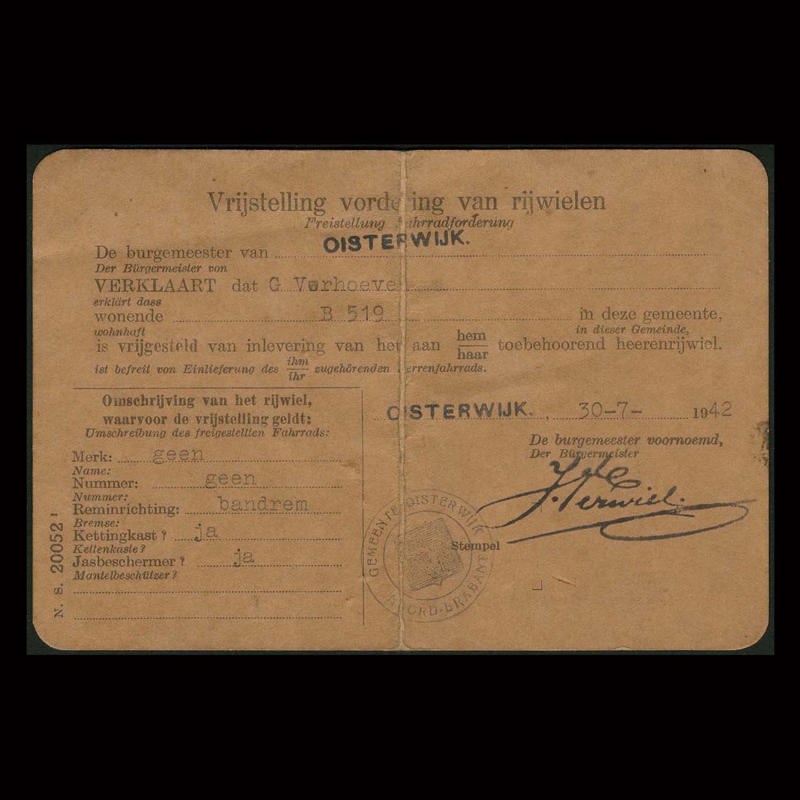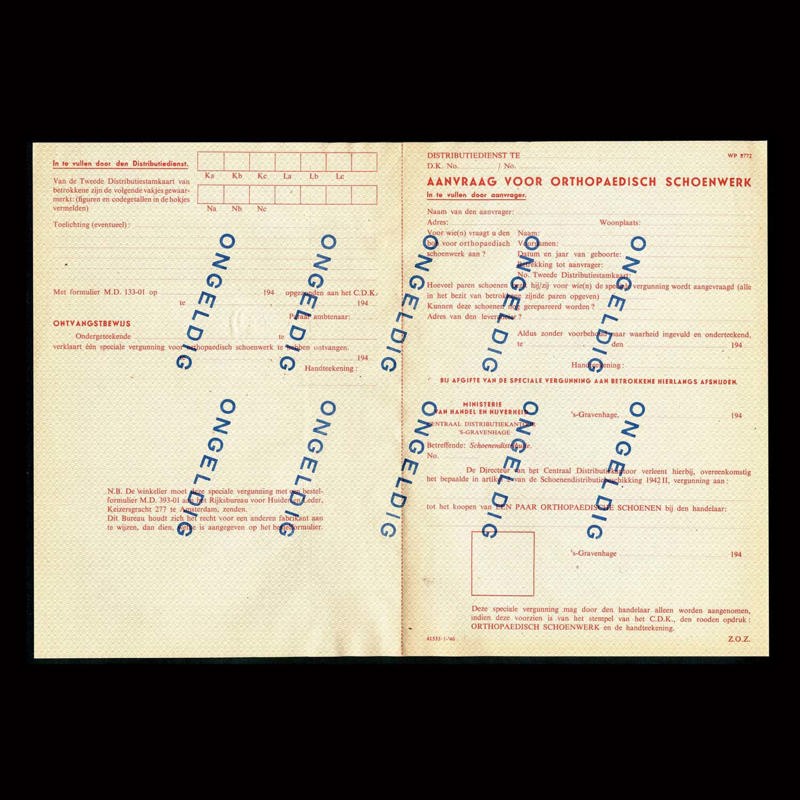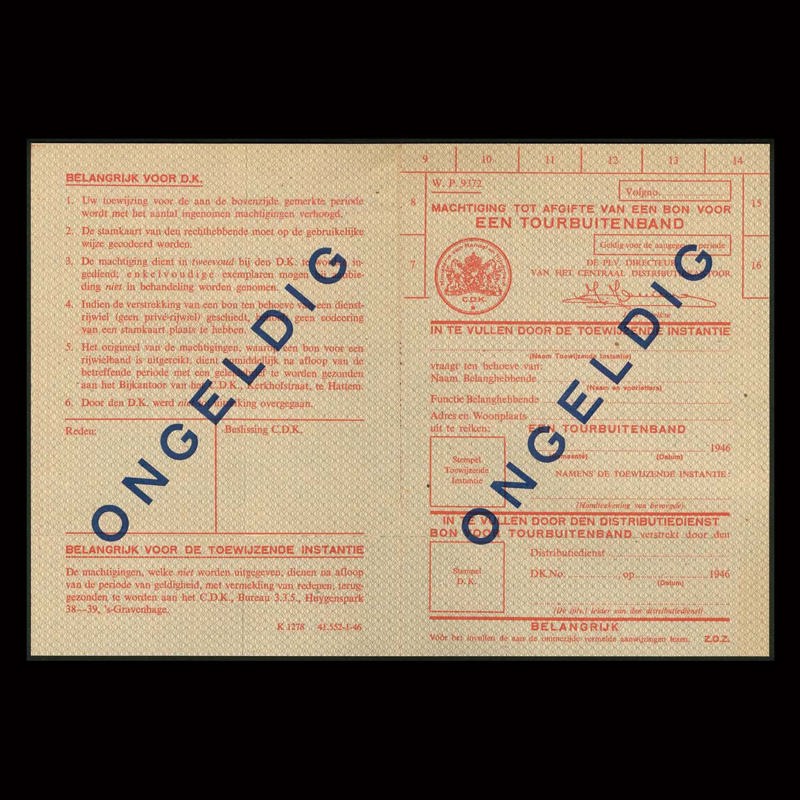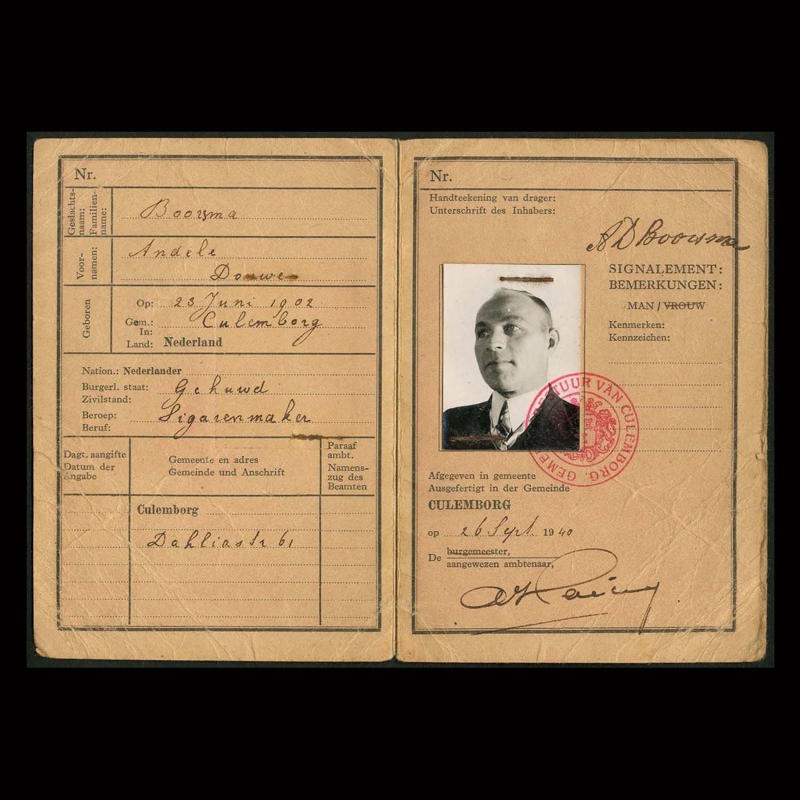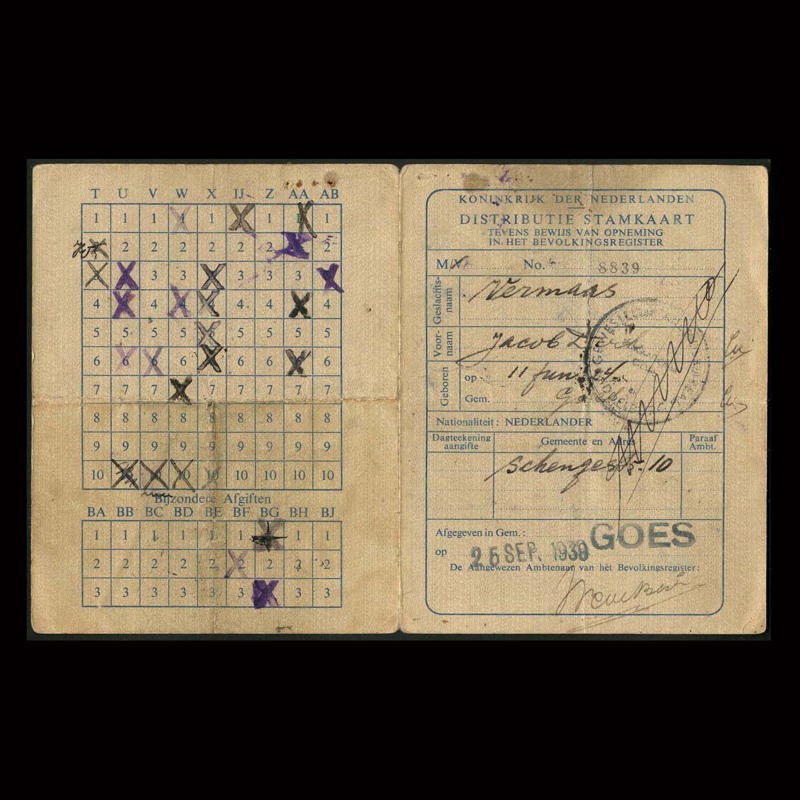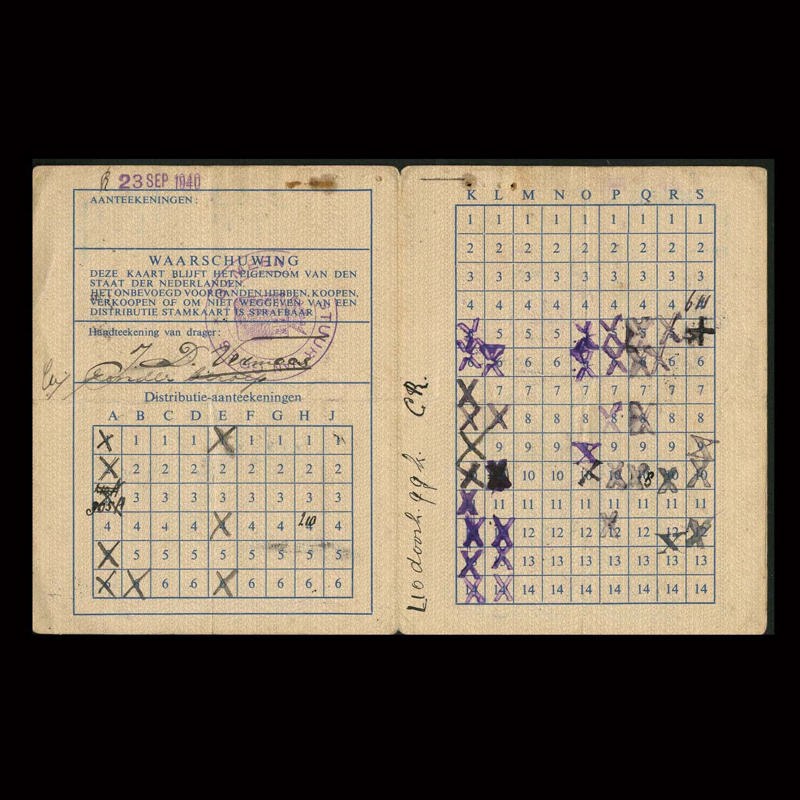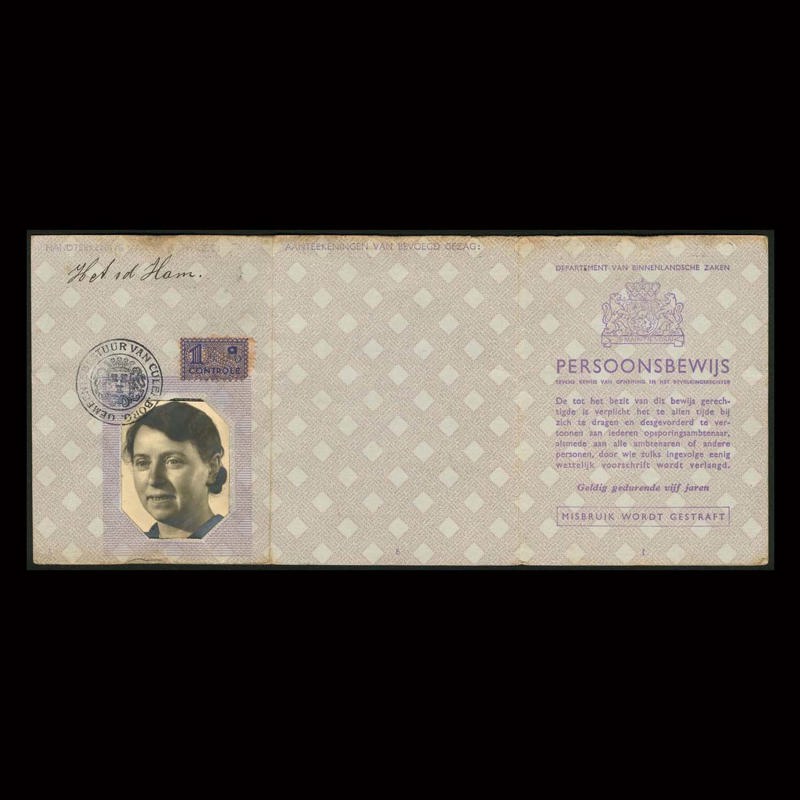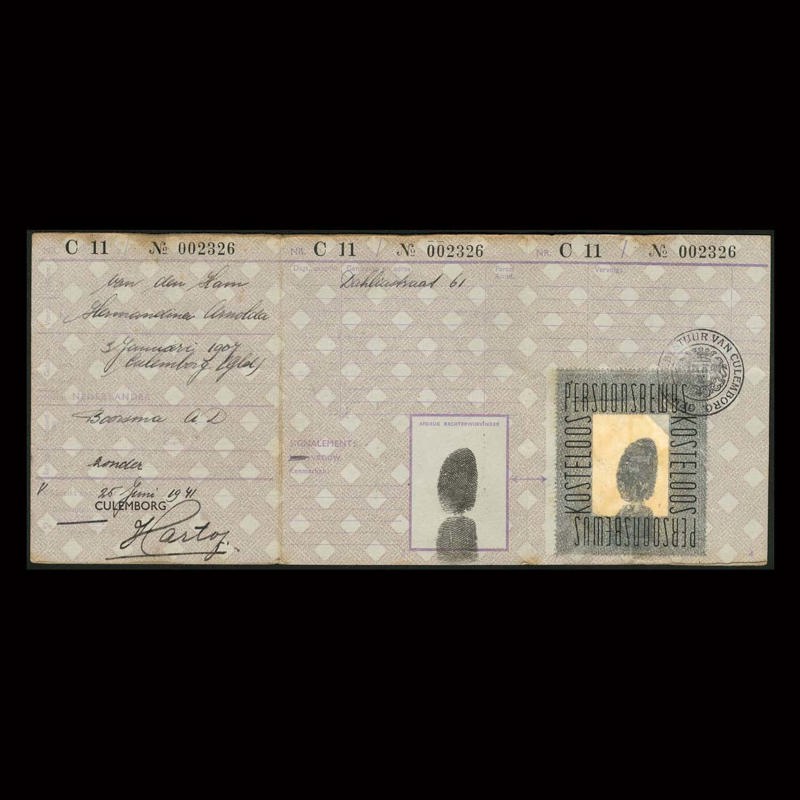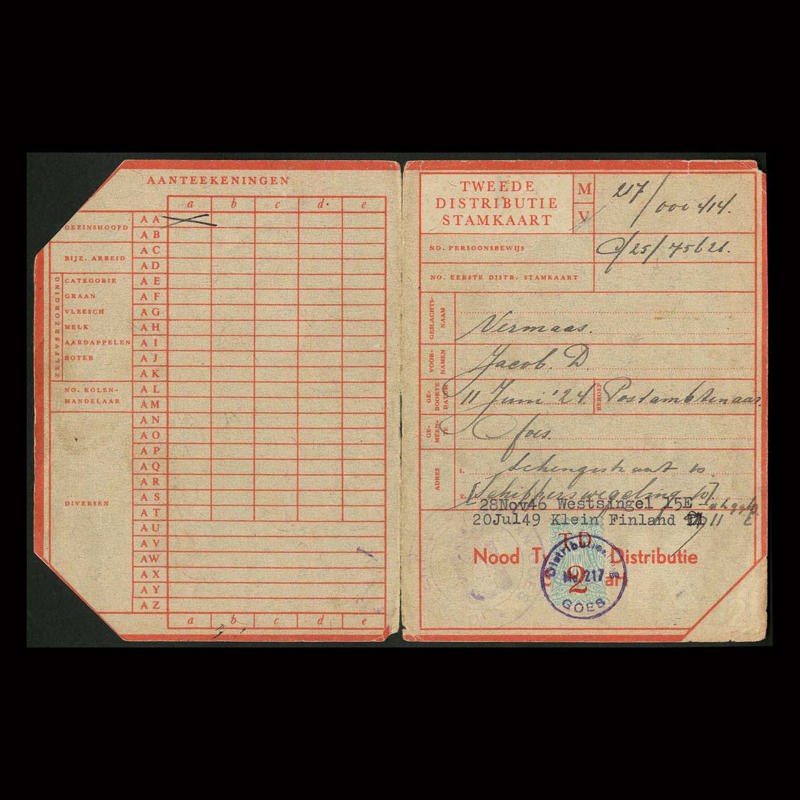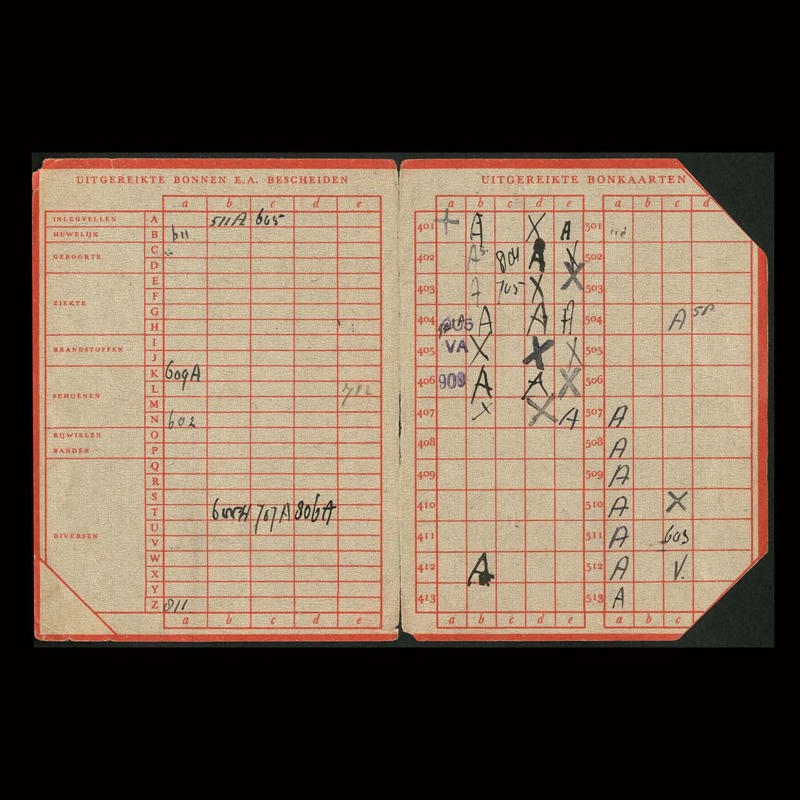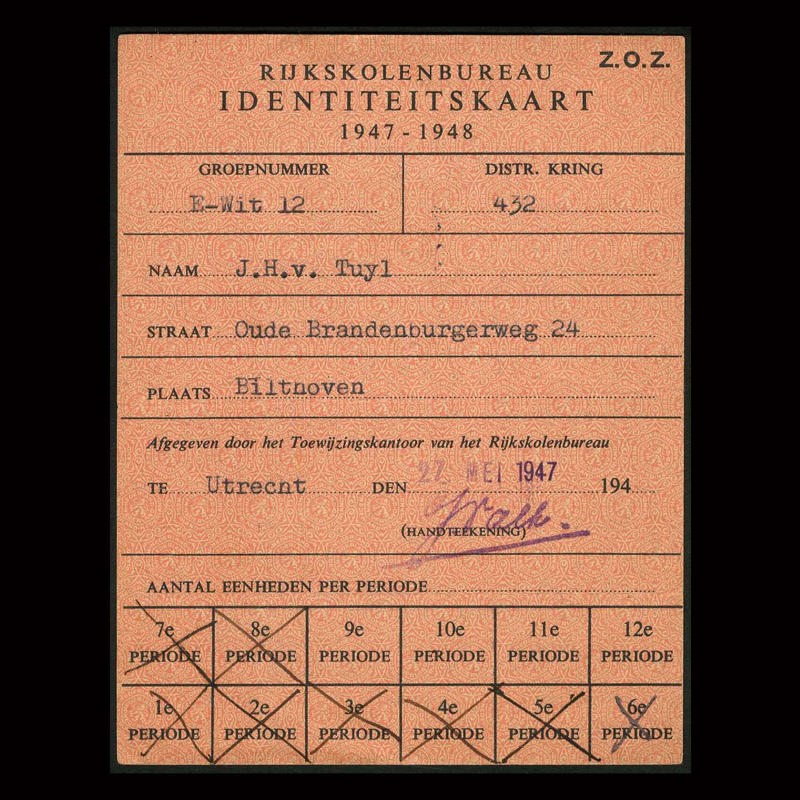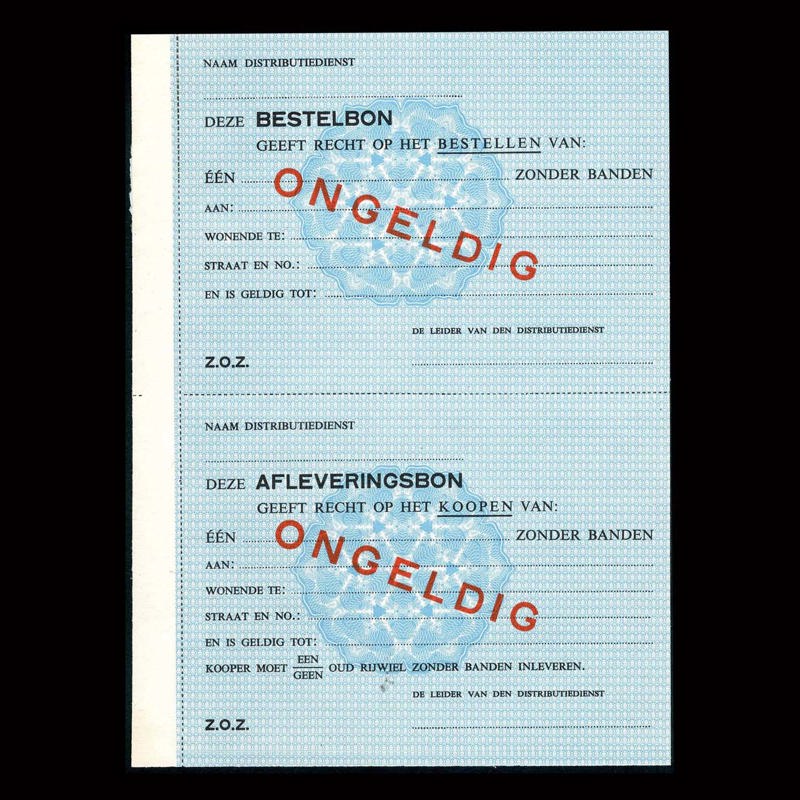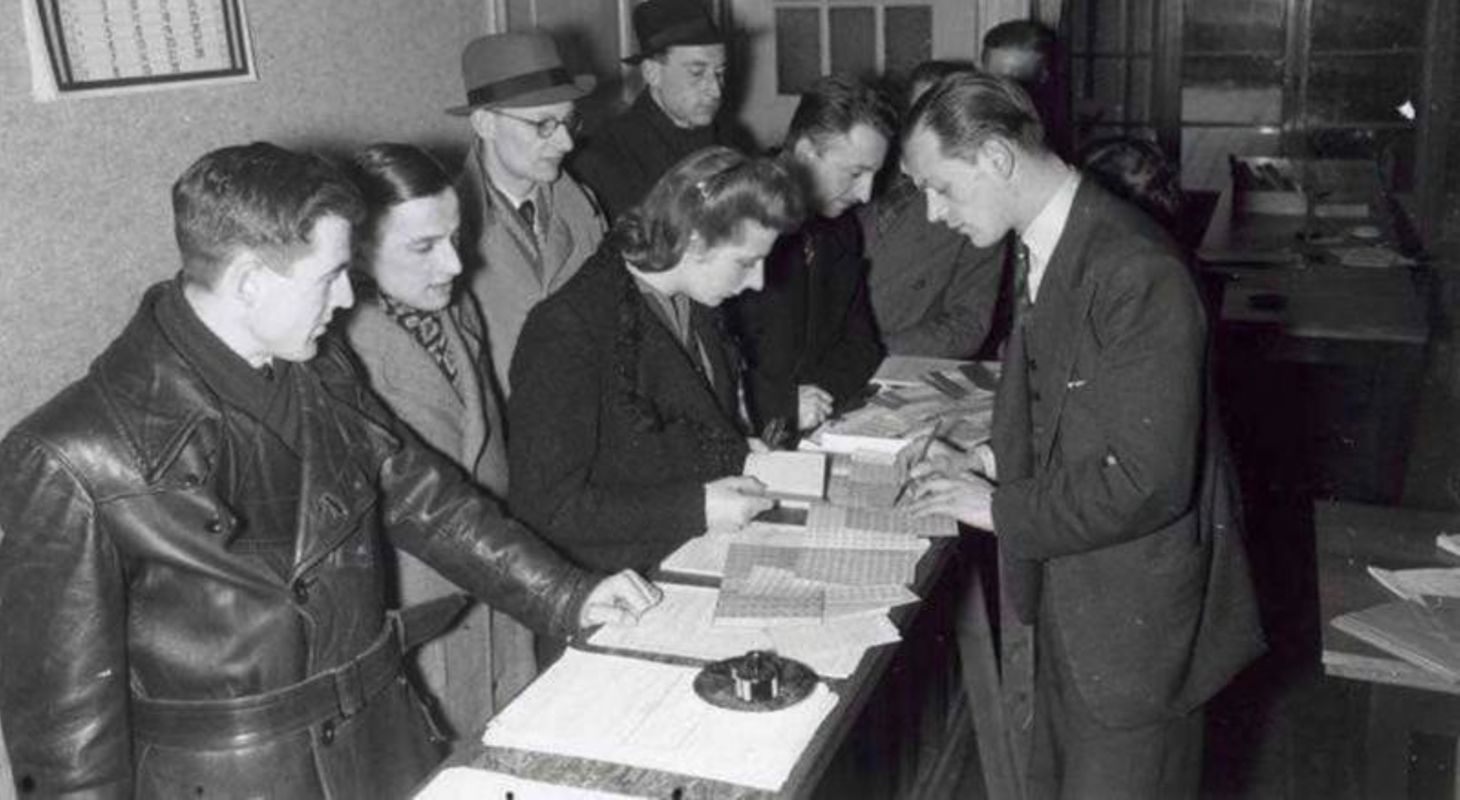
Collection Dutch ration coupons
Ration coupons and WW II documents
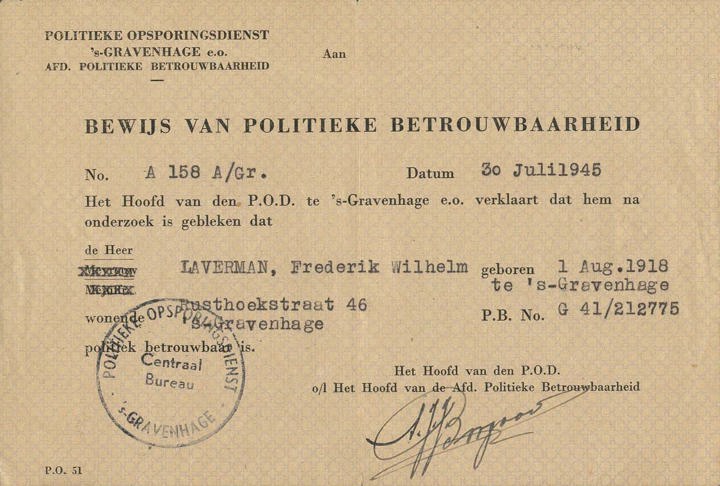
Collection description:
Collection of approximately 2350 different Dutch ration coupons, mostly in complete sheets, and related documents from World War II. Many complete sheets bear the overprint "ONGELDIG" (INVALID). They come from the "specimen archive" of a distribution office in Utrecht, where they were used to recognize forgeries.
The collection is in good condition. All sheets have previously been mounted. A rare museum-worthy ensemble.
The collection can be viewed in Eindhoven, Netherlands.
Price: 25,000.00 Euro.
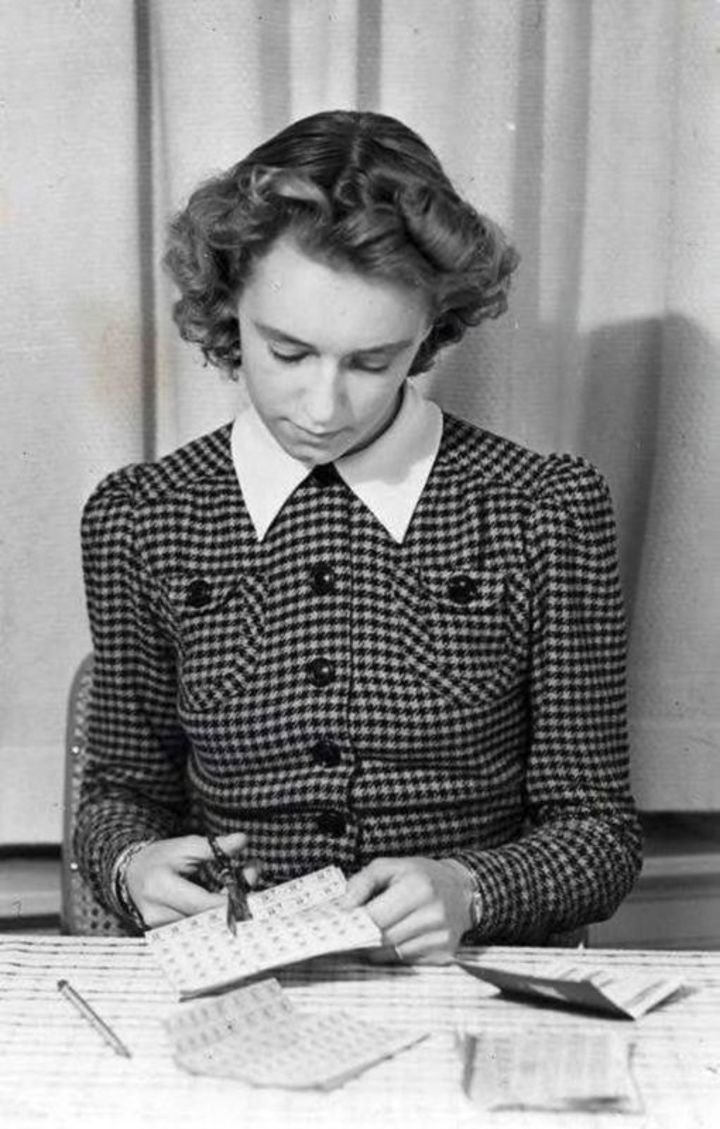
History of the rationing system in the Netherlands.
During the German occupation in World War II, the Dutch population suffered from severe food shortages. To ensure that everyone had access to basic food items, the Dutch government introduced ration coupons.
Ration coupons were used to fairly distribute essential goods such as food, clothing, and fuel among the population. Each person received a booklet with a certain number of coupons, which they could exchange for a specified amount of a particular product. The number of coupons required for a product varied depending on its availability and importance.
The rationing system was introduced in 1940. Initially, ration coupons were mainly used for food products such as bread, potatoes, and vegetables. As the war progressed, the list of rationed goods expanded to include clothing, fuel, soap, and other essential items.
The rationing system was a means to control and distribute scarce resources in a fair manner. It was also used to prevent hoarding and black market trading, as ration coupons were valid for a limited period and strictly monitored.
However, the system was not without its problems. The allocation of ration coupons was often unequal, and some people had more access to essential goods than others. There was also a thriving black market for goods that were not available through the rationing system, meaning that those who could afford it could obtain goods that were otherwise unavailable.
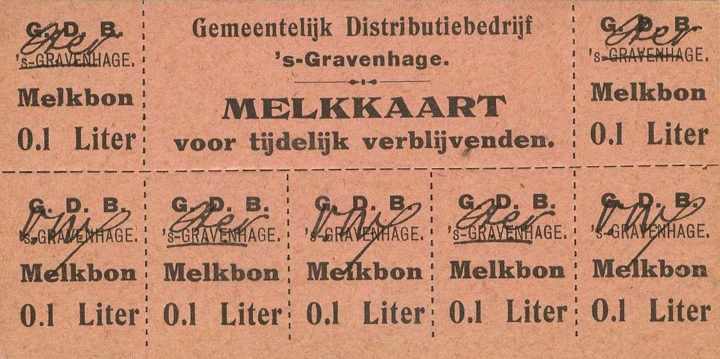
Despite these difficulties, the rationing system remained in effect until the end of the war in 1945. It played a crucial role in ensuring that the Dutch population had access to basic necessities during a period of great hardship and scarcity.
In conclusion, ration coupons were a significant feature of daily life in the Netherlands during World War II. They were used to distribute essential goods in a fair and equitable manner and to prevent hoarding and black market trading. Although the system was not perfect, it played a vital role in safeguarding the population's access to basic necessities during a time of great hardship and scarcity.
Request a viewing
Buy this collection?
Collectweb is the online platform for unique collections. We provide new and experienced collectors with a place where expert-selected collectibles can be easily discovered, bought, and sold. With over 100,000 unique pieces, we help you find the perfect addition to your collection.
In a collection, you encounter many stories. That's precisely why something is worth preserving. At Collectweb, we live to tell these stories. By doing so, we not only convey the background of an item but also share the interest and passion that accompany the story. This way, collectibles remain significant and valuable in their own way for generations to come.
In today's financial markets, a collection is an excellent way to diversify an investment portfolio. A rare collection holds its value and has the potential to become more valuable over the years.
This collection can be viewed in Eindhoven, the Netherlands.
Please fill in your details below, and we will contact you as soon as possible to schedule an appointment.

